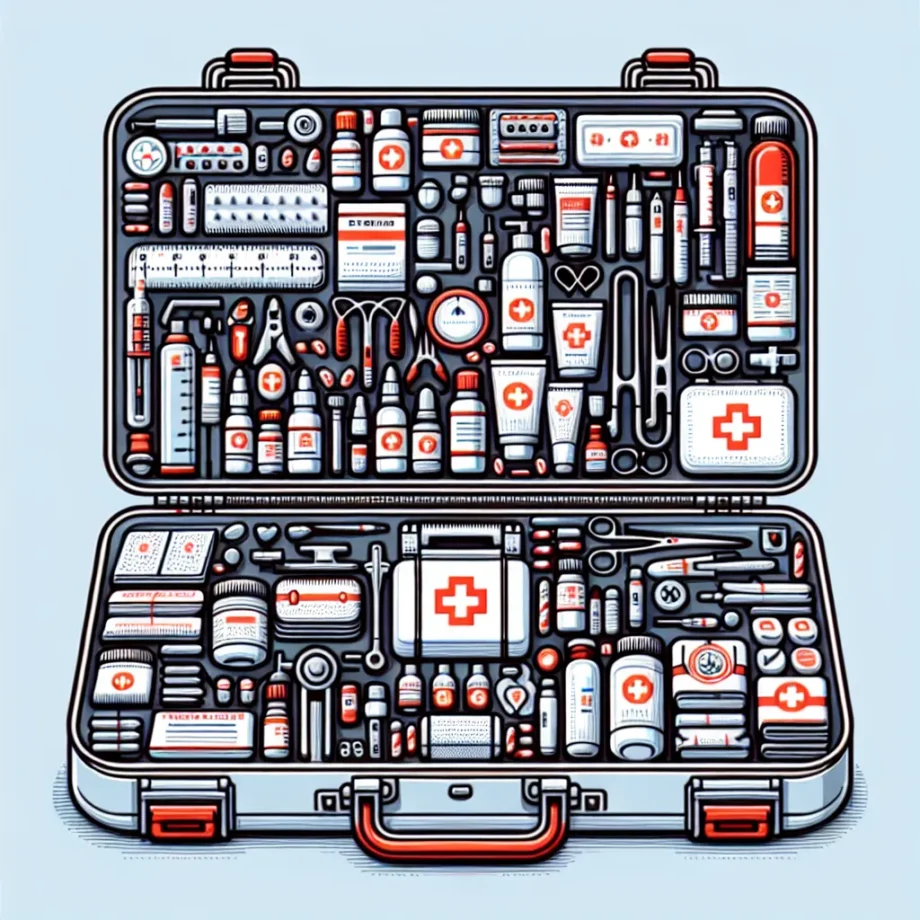Essential Medical Supplies for Your First Aid Kit
When it comes to building the perfect first aid kit, it’s crucial to include essential medical supplies that can address common injuries and medical needs. These supplies are the foundation of any well-prepared first aid kit and can make a significant difference in providing immediate care in an emergency situation.
One of the most essential medical supplies to include in your first aid kit is adhesive bandages in various sizes. These are crucial for covering and protecting minor cuts, scrapes, and blisters. Additionally, sterile gauze pads and adhesive tape should be included to dress larger wounds and control bleeding.
Another must-have item is an instant cold pack, which can provide relief for sprains, strains, and other minor injuries. A thermometer is also essential for monitoring body temperature, especially in cases of illness or heat-related emergencies.
Furthermore, including basic over-the-counter medications such as pain relievers, antihistamines, and anti-diarrheal medications can be incredibly helpful in managing common symptoms and providing comfort in an emergency.
Lastly, it’s important to have a pair of sharp scissors, tweezers, and disposable gloves to help with wound care and minimize the risk of infection.
By including these essential medical supplies in your first aid kit, you can ensure that you are well-prepared to address a wide range of minor injuries and medical needs that may arise.
Building the Perfect Emergency Kit: What You Need to Include
Building the perfect emergency kit is crucial for being prepared in any unexpected situation. Whether it’s a natural disaster, a medical emergency, or a simple hiking trip, having the right supplies can make all the difference. When assembling your emergency kit, there are several must-have items to include to ensure you are well-equipped.
First and foremost, every emergency kit should contain basic medical supplies such as adhesive bandages, sterile gauze, antiseptic wipes, and adhesive tape. Having these essentials can help address minor injuries and prevent infections. Additionally, including over-the-counter medications like pain relievers, antihistamines, and anti-diarrheal drugs can be beneficial in managing common health issues.
Moreover, it’s important to have tools and supplies for emergency situations, such as a flashlight with extra batteries, a multi-tool, a whistle, and a fire starter. These items can assist in navigating darkness, performing simple repairs, signaling for help, and creating warmth and cooking food if needed.
Furthermore, non-perishable food items, water, and personal hygiene products should not be overlooked. Stock up on ready-to-eat meals, granola bars, and dried fruits, along with an ample supply of water. Don’t forget to include personal hygiene items like toothbrushes, toothpaste, and sanitation wipes to maintain cleanliness.
Lastly, it’s crucial to have important documents and emergency contacts stored in a waterproof container. Include copies of identification, insurance cards, and a list of emergency contacts, ensuring vital information is easily accessible in critical situations.
By including these essential supplies in your emergency kit, you can be better prepared to handle unforeseen circumstances and ensure the safety and well-being of yourself and others.
Must-Have Items for a Comprehensive First Aid Kit
When it comes to building the perfect first aid kit, having the right supplies is essential. There are several must-have items that should be included to ensure a comprehensive and effective first aid kit. These items include adhesive bandages in various sizes, sterile gauze pads, adhesive tape, antiseptic wipes, tweezers, scissors, a digital thermometer, disposable gloves, a CPR face shield, a first aid manual, and a variety of over-the-counter medications such as pain relievers, antihistamines, and stomach remedies. Additionally, it’s important to include personal medications and supplies that are specific to the needs of the individual and any potential medical conditions they may have. By including these must-have items, you can ensure that your first aid kit is well-equipped to handle a wide range of minor injuries and medical situations.
